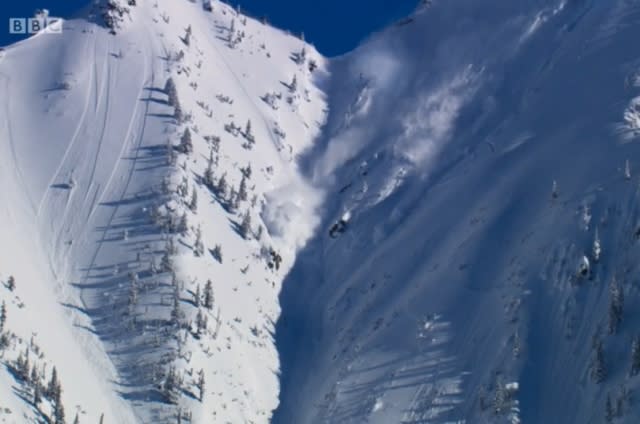Planet Earth II: BBC hits back over recycled avalanche footage

The BBC has responded to claims that a dramatic avalanche scene from its hit series Planet Earth II was "faked" after viewers spotted familiar footage from 2006.
In last Sunday's episode from the popular David Attenborough series, a dramatic avalanche, which was recycled from the first Planet Earth series ten years ago, is seen.
SEE ALSO:BBC to allow British tourists to access iPlayer from abroad
SEE ALSO: Blue whale upstages BBC presenter
Now the BBC has defended its use of the footage and said it was to give TV licence payers value for money, the Daily Telegraph reports.
The BBC said: "In natural history programming, we sometimes augment our sequences with footage which was originally shot for other productions.
"We are always conscious of the need to manage budgets on our projects carefully.
"Sharing or re-using footage is one of the ways we ensure the licence fee payer gets the best value for money, and enables us to use our budgets to maximise the amount of truly extraordinary, new animal behaviour and natural phenomena in our series."
The avalanche scene was followed by a sequence showing grizzly bears emerging from the snow, but the BBC1 show's executive producer Mike Gunton said they were very careful not to link the animals to the avalanche.
Speaking to the Daily Mirror, he said: "We don't ever say that those bears are on the same slope as the avalanche that you just saw.
"We are saying – generically – that avalanches are a problem."
Earlier this year, staff at the BBC Natural History Unit were told they would have to complete training before they are allowed to work on nature documentaries after scenes in BBC2 series Patagonia: Earth's Secret Paradise were faked.
A scene showing lightning over a volcano eruption was created by splicing footage of two different eruptions together.
It emerged later that the clip used a volcano eruption from 2011 in the 2015 show.
The BBC Trust said the sequence was "potentially misleading".
In a summary of its findings, it added: "They considered this was a serious breach of the editorial guidelines for accuracy."




